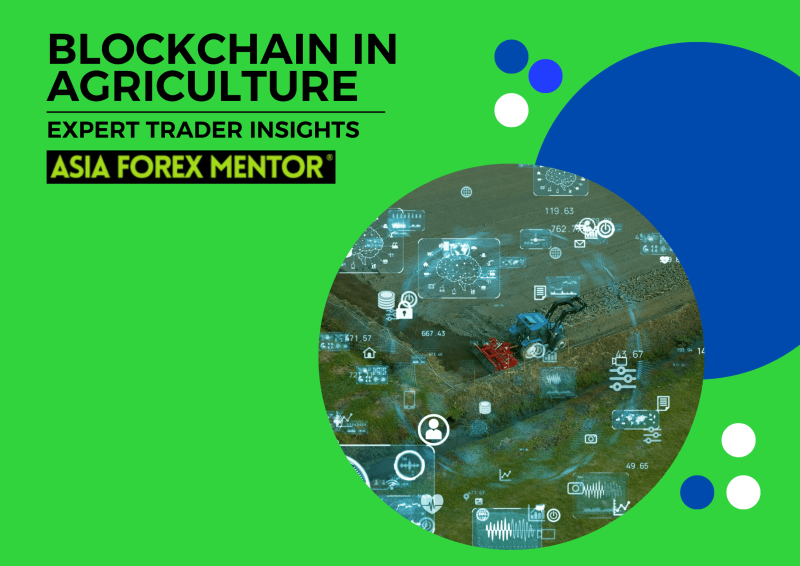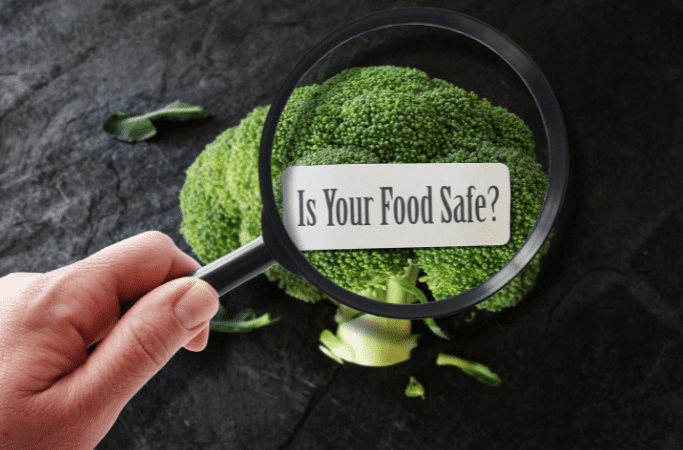The integration of blockchain technology in agriculture is revolutionizing the way we view and manage the agricultural supply chain. This transformative technology is not only enhancing food safety and food quality but also promoting sustainable agricultural practices. In an era where information and communication technology (ICT) is pivotal, the role of blockchain in the agriculture and food industry cannot be overstated. This article aims to demystify the concept of blockchain technology and its profound impact on the agriculture sector, making it accessible to those in finance and investment.
Blockchain Technology: A Primer
Blockchain technology introduces a distributed ledger technology (DLT) that stands out for its security, transparency, and immutability. This foundational aspect guarantees that once data is recorded on the blockchain, it remains unchangeable, thereby upholding data integrity and fostering trust throughout the entire supply chain. The immutable nature of blockchain is pivotal in ensuring that all transactions and data entries are permanent and verifiable, enhancing transparency and accountability across various sectors.
Utilizing private key encryption and smart contracts, blockchain technology establishes a solid infrastructure for secure and efficient data management. Private key encryption ensures that data transactions on the blockchain are secure and accessible only to authorized parties, while smart contracts automate the execution of agreements, streamlining processes and reducing the need for intermediaries. This combination of features enables blockchain systems to offer a powerful solution for managing complex data with integrity and efficiency.
Also Read: Bitcoin For Dummies – Ultimate Guide for Beginners
Enhancing Supply Chain Transparency in Agriculture
The agricultural supply chain grapples with significant hurdles such as food traceability, supply chain transparency, and transaction costs. These challenges impact the efficiency and reliability of the food distribution process, from producers to consumers. Blockchain technology emerges as a solution, enhancing supply chain transparency and simplifying the complexities involved in supply chain management. Its application promises a more transparent, efficient, and trustworthy system.
By integrating blockchain technology, stakeholders gain the ability to monitor the entire agricultural process—from the initial stages of production on the farm to the final delivery on the consumer’s table. This level of traceability ensures the authenticity and safety of food products, addressing concerns about food quality and origin. Blockchain’s immutable ledger means every step of the food’s journey is recorded and verifiable, offering unprecedented insight into the food supply chain.
Improving Food Safety and Quality
Food safety stands as a critical issue within the food industry, directly impacting consumer health and confidence. The introduction of blockchain technology in agriculture significantly enhances food safety measures by creating a transparent and immutable record of the food production process. This transparency allows for the immediate identification and resolution of potential food safety concerns, ensuring that products meet high standards of quality and safety.
Moreover, the verifiable nature of records maintained on a blockchain instills a greater level of consumer trust in food products. By allowing consumers to trace the journey of their food from farm to fork, blockchain technology reassures them of the authenticity and safety of their purchases. This not only promotes confidence in the food supply chain but also encourages a more informed and health-conscious consumer base.
Smart Contracts and Farm Management
Smart contracts, a key feature of blockchain technology, revolutionize how agreements and transactions are conducted within the supply chain. By automating these processes, smart contracts eliminate the need for intermediaries, leading to substantial reductions in transaction costs and a significant increase in operational efficiency. This automation ensures that contractual terms are executed precisely as agreed upon, fostering a more seamless and reliable exchange between supply chain partners.
The benefits of smart contracts extend beyond simple transactions, integrating with farm management software, supply chain management software, and enterprise resource planning (ERP) systems. This integration facilitates the seamless flow of on-farm data throughout the supply chain, optimizing the farming process and improving crop yields. By leveraging blockchain technology, these systems can now operate more efficiently, ensuring that agricultural practices are more productive and sustainable.
Blockchain for Sustainable Agriculture
Sustainable agriculture gains significantly from the adoption of blockchain technology. This innovative technology supports sustainable agricultural practices by improving environmental monitoring and the management of data concerning farming methods. Through its transparent and immutable ledger, blockchain ensures accurate tracking and reporting of environmental impacts, aiding in the responsible management of natural resources.
Furthermore, blockchain’s capacity to streamline data management across the agricultural supply chain contributes to enhanced operational efficiency. It facilitates the optimization of resource allocation and reduces waste, thereby improving the sustainability of farming practices. This not only benefits the environment by promoting more eco-friendly practices but also boosts the overall productivity and sustainability of the agricultural industry.
Blockchain Adoption Challenges and Future Directions
Despite the clear advantages offered by blockchain technology, its adoption within the agriculture sector is not without hurdles. Key challenges include the necessity for robust technological infrastructure and the complexity of integrating blockchain with existing systems. These obstacles can impede the seamless implementation and scalability of blockchain solutions in agricultural practices, requiring significant investment and adaptation efforts from stakeholders in the sector.
Nevertheless, the potential benefits of blockchain in agriculture remain immense. The technology opens doors to smart agriculture and smart farming technology, which can revolutionize farm management and crop production. Additionally, blockchain-based insurance markets offer new ways to manage risks and protect farmers against uncertainties. These innovations hold the promise of not only improving supply chain efficiency but also bolstering food security, making the pursuit of blockchain integration a worthwhile endeavor for the future of agriculture.
Conclusion
The use of blockchain in agriculture marks a significant shift towards more transparent, efficient, and sustainable food supply chains. As this technology continues to evolve, the agriculture blockchain technology promises to address critical challenges in the food sector, including food safety, food traceability, and supply chain management. By fostering smart index insurance contracts, smart agriculture, and smart farming technology, blockchain is set to revolutionize the agricultural industry, making it more resilient, sustainable, and aligned with the needs of a growing global population.
Also Read: Blockchain in Gaming
FAQs
What is blockchain technology in agriculture?
Blockchain technology in agriculture refers to the use of a secure, transparent, and immutable digital ledger to improve supply chain transparency, food safety, and efficiency in agricultural practices.
How does blockchain enhance food safety?
Blockchain enhances food safety by providing a transparent record of the food production process, enabling the tracking of products from farm to table and ensuring the authenticity and safety of food items.
What are the challenges of adopting blockchain in agriculture?
Challenges include the need for advanced technological infrastructure, the complexity of integrating blockchain with existing systems, and the requirement for stakeholder collaboration and investment.







